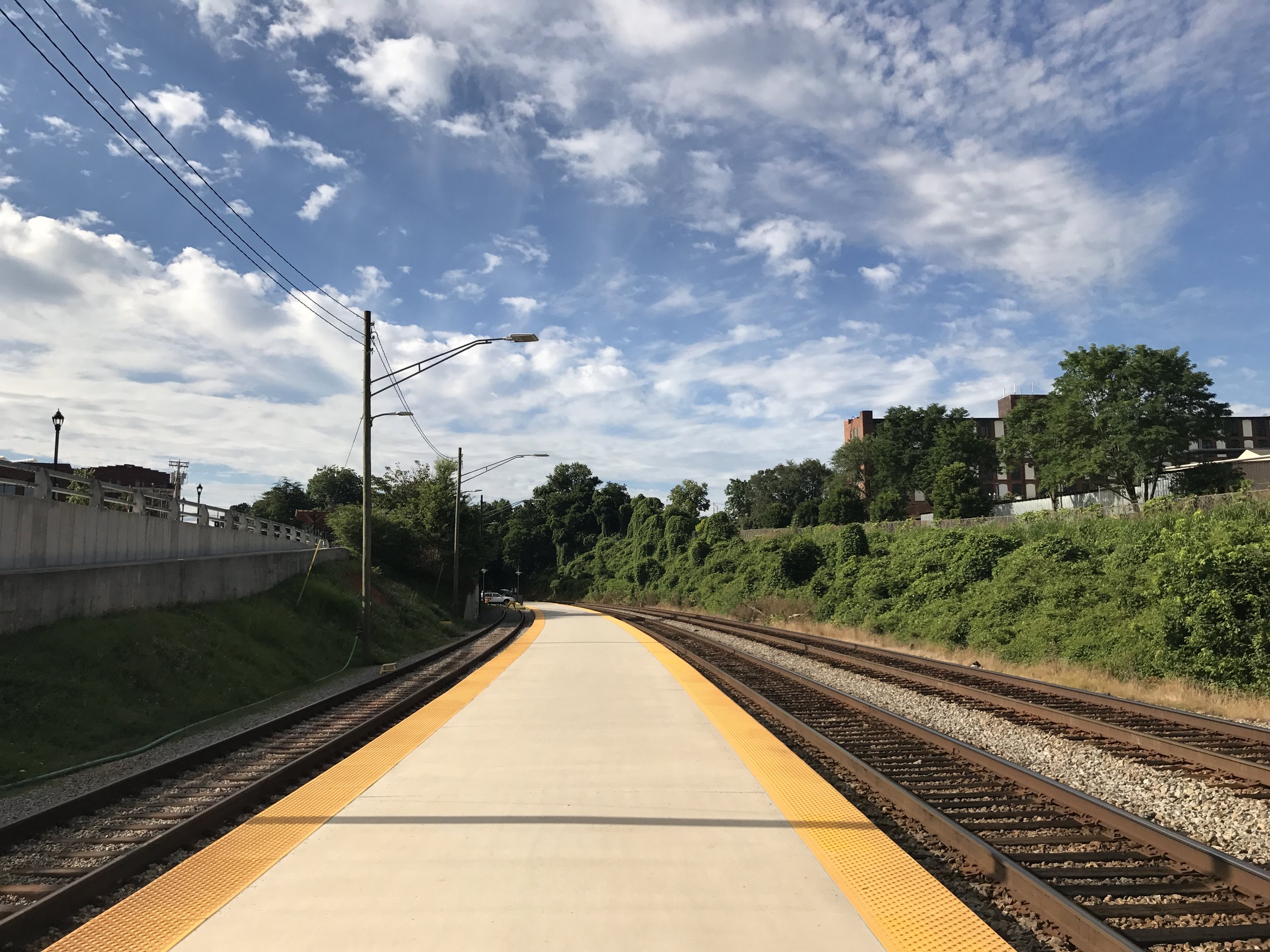Amtrak platform, Lynchburg, VA
I apologize I didn't write this final blog on the Amtrak train back to NYC from Lynchburg, Virginia, as I promised. But I am writing it now, and although it is not directly about cycling in the Blue Ridge, it owes its origin to the heat I experienced as I biked there, as well as to the recent heat wave in the American Southwest.
There's nothing like discomfort to make one pay attention. I've had heat rash before in small doses, but never as debilitating as I experienced on this recent tour. It got me to thinking about what other kinds of challenges might lie in our futures as warming trends increase. As neither a health professional nor an environmental scientist, my direct knowledge about what may happen is limited, but as someone willing to spend time in natural (i.e., unconditioned) environments, I think I have a personal experience worth sharing.
When cycling, one cannot help being aware of car traffic. And on most days, one cannot help being aware of how - in America at least - drivers are now almost always in hermetic spaces, often with windows up and the AC or heat on, providing them with a comfortable atmosphere free of dust, humidity and a pleasant temperature somewhere between 64 and 72 degrees, depending on preference. I know this because as loudly and obnoxiously as I might yell at drivers that pass by me uncomfortably close and/or fast, no one hears me. Seriously. And I can yell very loudly.
Newer motels mimic the comfort of cars (or is it the other way around?) and many generic (and newer) chain motels are built with windows that don't open and with PTAC units that allow one to set the temperature exactly where one wants (this reality may have something to do with why I prefer older mid-century motels, where windows can be opened).
It's an opinion I cannot verify, but I suspect the growing ubiquity of conditioned spaces in the developed world is part of what makes climate change denial still possible. After all, how can one appreciate a changing climate if one is rarely in it?
But the general science of climate change is nether hard to grasp nor out of the realm of fundamental physics. Greater concentrations of certain gases in the atmosphere causes air to retain more heat. Carbon dioxide is one of those gases, as are methane and other kinds of fluorocarbons. And emissions of these gases remain on the rise. It is true that there is some evidence of certain kinds of emissions leveling off, but to use a health metaphor - slowing down a cancer buys you time, but not a cure. Yet, our earth has a lot of natural healing mechanisms although they are close to being played out.
The recent catastrophic forest fire in Portugal.
Of course, no one likes a chicken little, and some of my readers get upset by my continued insistence that we not sugarcoat our situation. Yet, if like me, you are curious about what's likely to happen depending on different emission scenarios, there are some excellent reports to read of the most predictive climate science available. For Americans, there is the American National Climate Assessment. Canadians and those Americans who want to think more about the continent (sans Mexico, where assessment materials aren't as developed), there is the Canadian Climate Assessment. And globally, one can refer to the World Meteorological Organization Climate Assessment.
Here is a list of the links above (in order mentioned) for your convenience.
Recent heat wave in the American Southwest
Worldwide heat waves in our future
Heating trends even if Paris Accord goals are met
American National Climate Assessment
World Meteorological Organization Assessment
More to come as my next trip unfolds. I hope you enjoyed following me on my recent Blue Ridge Cycling Tour.
Best, Michael


